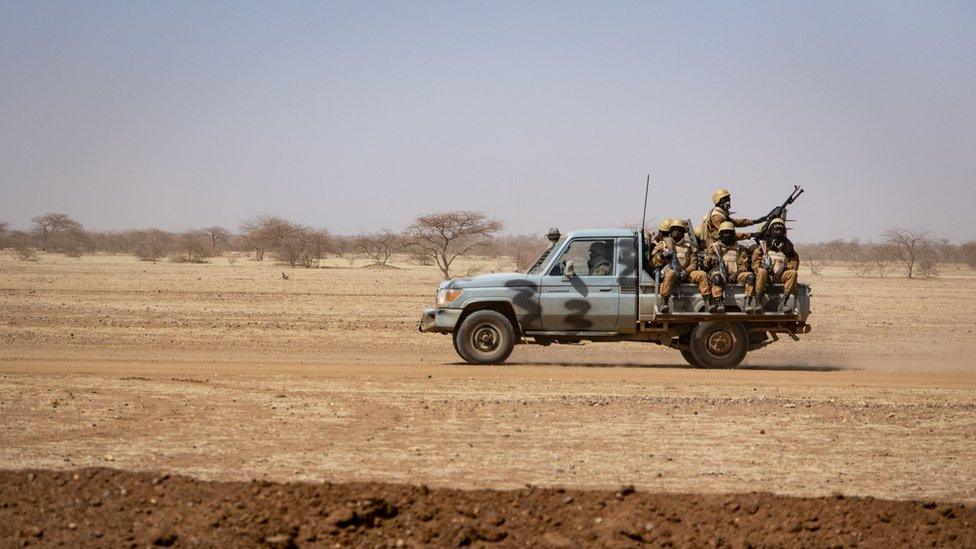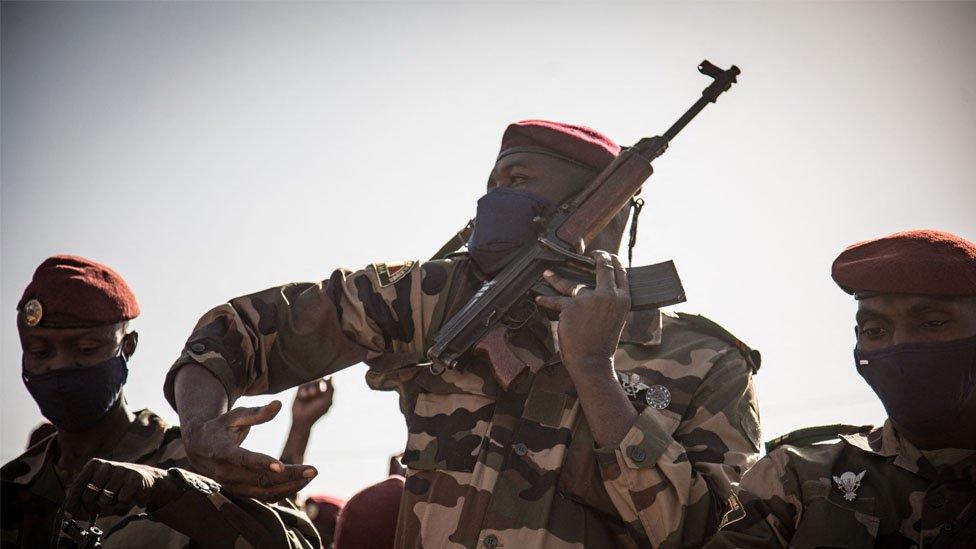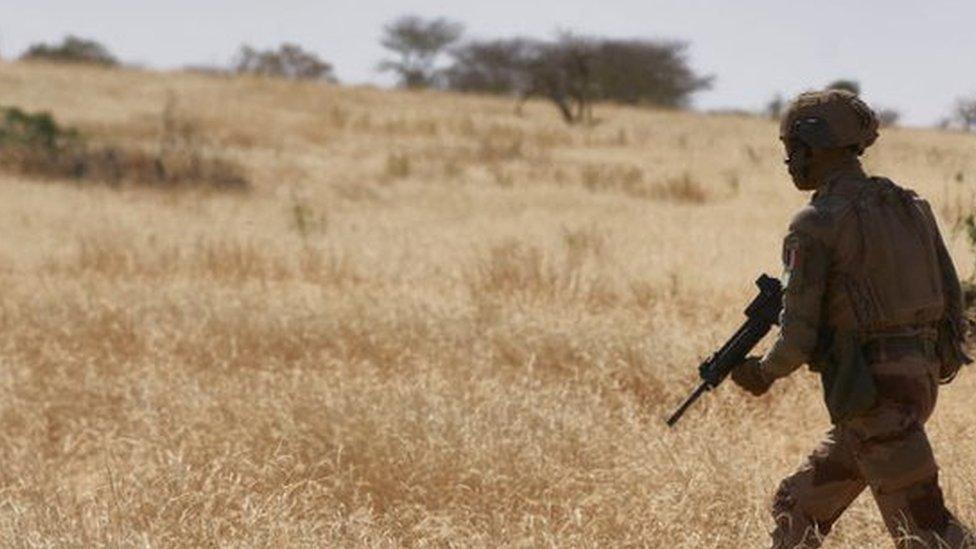Burkina Faso bans more foreign media over Human Rights Watch massacre report
- Published

Human Rights Watch said the alleged killings were Burkina Faso's "worst army abuse" in nearly a decade
Burkina Faso has suspended yet more foreign media outlets over their coverage of a report accusing its army of killing 223 civilians.
The report, by US-based Human Rights Watch (HRW), said it believed the the massacre in February was in retaliation for villagers aiding armed Islamists.
The West African nation's military government has denied the allegation.
They have already suspended the BBC and US broadcaster Voice of America for reporting on the HRW's publication.
The UK and US governments said in a joint statement that they strongly opposed the suspension of media outlets in the country, and urged authorities to reconsider their decision.
"Free and independent media must be permitted to conduct investigations and good-faith reporting without fear of reprisals," it read.
Burkina Faso is ruled by a military junta, which seized power in a coup in 2022, promising to end the Islamist insurgency.
The violence has however continued to escalate, with more than a third of Burkina Faso controlled by jihadist groups.
On Sunday, Burkina Faso's communications regulator said broadcasts from French network TV5Monde would also be suspended for two weeks and access to its website blocked, state-owned media reported.
The websites of German broadcaster Deutsche Welle (DW), French newspapers Le Monde and Ouest-France, British newspaper the Guardian, and African agencies APA and Ecofin have also been barred until further notice.
In its report, the non-governmental organisation said that Burkina Faso's military had killed 179 people in Soro and 44 others in the nearby Nondin, villages in the country's north.
The alleged killings were the country's "worst army abuse" in nearly a decade, HRW said.
In a statement published on Saturday, Burkina Faso's Communications Minister Rimtalba Jean Emmanuel Ouedraogo said: "The government of Burkina Faso strongly rejects and condemns such baseless accusations."
The minister also expressed his surprise that "while this inquiry is under way to establish the facts and identify the authors, HRW has been able, with boundless imagination, to identify 'the guilty' and pronounce its verdict".
On Monday, DW urged Burkina Faso's authorities to unblock their website "as quickly as possible".
"The blocking of dw.com and other media in Burkina Faso means the people there are being deprived of the important right to independent information," Nadja Scholz, DW's Managing Director of Programming, said.
"Our coverage in and about Burkina Faso continually provides facts and balanced perspectives."
DW also suggested ways in which its Burkina Faso audience could access its website, for example through the use of virtual private networks (VPNs).
International and human rights groups, including the European Union and UN, have accused Burkina Faso of serious human rights violations in its fight against Islamists, including the indiscriminate killings and forced disappearances of dozens of civilians.
Supporters of the military junta have previously criticised the media for reporting alleged atrocities, saying that the reporting is designed to hit the morale of the Burkina Faso armed forces.
In a statement on Thursday, Burkina Faso's media regulator warned all media outlets against covering the report, threatening sanctions, state-owned media reported.
Commenting on the authorities' ban on its content, a BBC spokesperson said: "The suspension reduces the BBC's ability to reach audiences with independent and accurate news. We will continue to report on the region in the public interest and without fear or favour."
In an article on Friday, Voice of America (VOA) said it "stands by its reporting about Burkina Faso and intends to continue to fully and fairly cover activities in the country".
You may also be interested in:
Related topics
- Published30 July 2022

- Published26 April 2024
